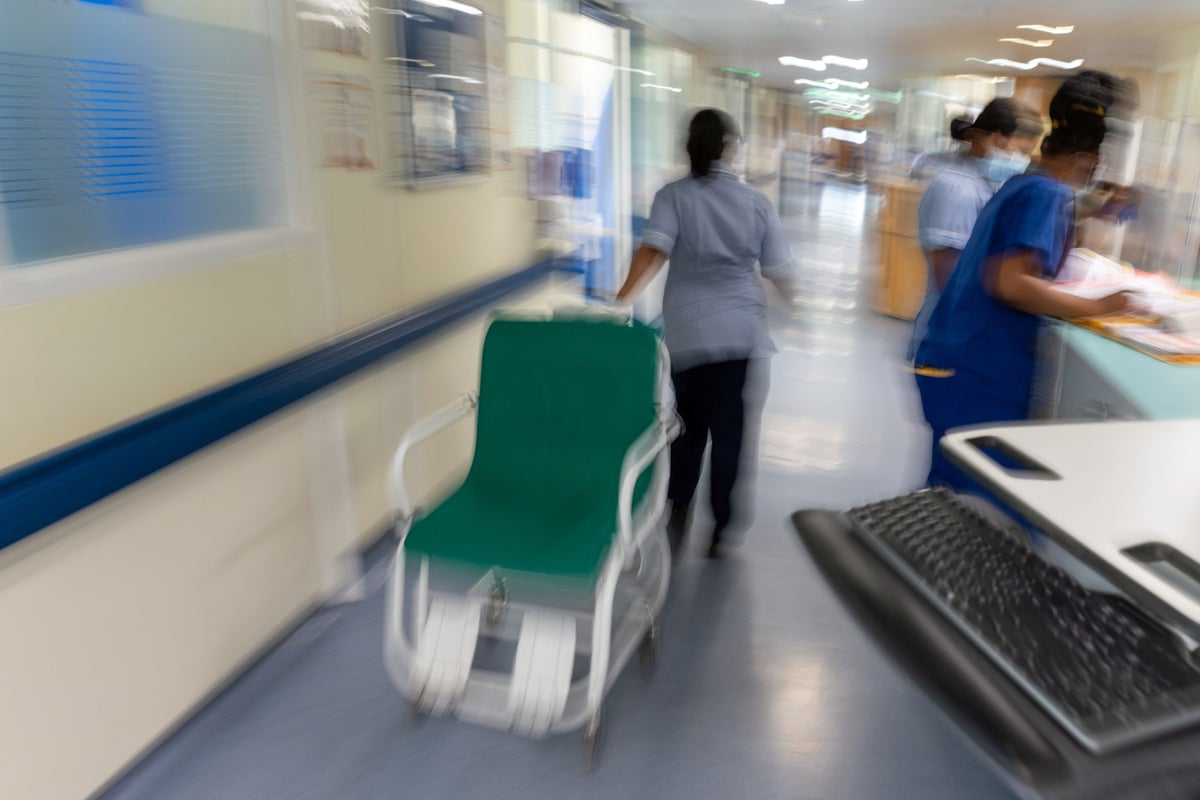
A surgeon has been compared to Jimmy Savile in a damning report on “systemic and institutional sexual violence” in the NHS.
The study looked at 174 anonymous, self-reported incidents by NHS staff, alleging sexism, sexual harassment and sexual assault committed by colleagues.
“Perpetrators of sexual violence are described as being well known, acting within a culture of tolerance, while survivors struggle to raise concerns and face enduring impacts on their wellbeing and careers,” the report by campaigners Surviving in Scrubs claims.
One survivor referred to a perpetrator as the “Jimmy Savile of the surgical community”, because he had allegedly “gotten away with so much before and was capable of ruining careers”. Another recalled being sexually propositioned by a male consultant who was covered in a female patient’s blood at the end of surgery.
Have you been affected by this? Email tara.cobham@independent.co.uk
MP Caroline Nokes, the women and equalities select committee chair told The Independent: “The report by Surviving in Scrubs is both harrowing to read and sadly unsurprising to those of us who have heard the testimonies of survivors and those who have championed them.”
The group of female doctors who set up Surviving in Scrubs has previously shared their views and experiences with the committee. The senior Conservative MP said she was “immensely grateful” for this but stressed that “what matters most is that we get change”.
“Sexual harassment, abuse and everyday sexism are not necessarily about sex, it is about power, and that comes over very clearly in the report,” she said. “This means the NHS as a whole and individual trusts need to put in place effective measures to tackle the problems, support victims and prevent more young women working in the NHS from falling prey to these sorts of behaviours.”
Caroline Nokes said the report was harrowing and change was needed— (PA Wire)
Two of the report’s authors, Dr Becky Cox and Dr Chelcie Jewitt, have met with the General Medical Council’s chief executive Charlie Massey. He told The Independent: “We are very clear that there can be no place for any form of sexual harassment, discrimination, misogyny or bullying in the medical profession.”
The report documented women’s stories of “significant power imbalance”, with claims of senior male staff perpetrating sexual violence against junior female colleagues in what the report called “a normalised culture of sexism, entitlement, and the devaluing of women staff”.
Survivors feared repercussions if they reported sexual misconduct, with several claiming to have received threats from perpetrators. The report alleged those who raised concerns were told “not to make a fuss”, were advised against making a complaint by human resources and seniors, or faced dismissive attitudes and the normalisation of perpetrators’ behaviour.
Stories documented survivors allegedly being asked for sexual favours in return for career advancement, including one paramedic who recalled being asked for nude photographs by her supervisor in return for passing a placement.
Of the incidents recorded, over 55 per cent of the survivors were junior doctors, while under seven per cent were other grades of doctors. Almost 10 per cent were nurses, and close to 12 per cent were healthcare students.
However, of the alleged perpetrators, nearly 60 per cent were consultants, while 17 per cent were other grades of doctors. Just over seven per cent were nurses, and 5.5 per cent were managers.
Some 42.3 per cent of the alleged incidents included sexual harassment, over a third (36.8 per cent) included sexism, around a fifth (20.6 per cent) involved sexual assault, and just under two per cent (1.9 per cent) involved rape.
Half of all incidents were claimed to have happened in patient-facing environments, including hospital wards, theatre and clinics.
Surviving in Scrubs is calling for an independent inquiry into the culture of sexism and sexual misconduct in healthcare.
Dr Latifa Patel, BMA equality lead, described the report as “shocking” but consistent with reports the union has heard from across the medical profession. She said: “Once again we have evidence of the institutional sexism that exists within healthcare that enables sexist behaviour and sexual misconduct to take place.”
The union – which launched a pledge in March aimed at ending sexism in the medical profession – said it is continuing to demand action to prevent these incidents from happening again, to support survivors, and to hold perpetrators to account.
Dr Binta Sultan, Chair of NHS England’s National Clinical Network of Sexual Assault and Abuse Services, said: “No one should experience sexism, sexual harassment, or sexual assault in the workplace – it is totally unacceptable. The NHS is taking steps to ensure that healthcare environments are safe for staff and patients.
“The health service’s first-ever sexual safety charter, which was produced with people with lived experience, commits to providing more support and clear reporting mechanisms to those who have suffered harassment or inappropriate behaviour.”
A Department of Health and Social Care spokesperson said: “Sexual misconduct or harassment of any kind is unacceptable and has no place in the NHS.
“NHS leaders have a duty of care to look after both their staff and patients and must stamp out any such behaviours in the NHS.”







